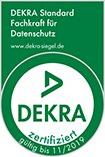The introduction of section 104c of the German Residence Act (AufenthG), has provided a new possibility for obtaining a residence permit since 31 December 2022 – the opportunity right of residence.
Foreign citizens with a temporary suspension of deportation (tolerated status) or with permission to remain pending the asylum decision (temporarily permitted status) who have lived in Germany for at least 5 years as of 31 October 2022 can benefit from the new regulation. They can obtain a residence permit for a limited period of 18 months. This period is intended to provide a one-off opportunity to fulfil all the requirements for a permanent residence permit according to section 25 a or section 25 b of the German Residence Act within the framework of a secure residence. If the person is unable to do so, he or she will revert to his or her previous status when the 18 month period has expired.
The requirements according to section 5 of the German Residence Act (AufenthG), such as a secure livelihood, clarification of identity or the obligation to have a valid passport do not have to be fulfilled for a residence permit according to section 104c of the Residence Act – the 18 month period serves to clarify aspects such as these.
According to paragraph (2), unmarried children of minor age, spouses or partners who live in a domestic community with the holder of a residence permit under section 107c (1) of the Residence Act may also apply for such a residence permit.
The specific requirements for a residence permit according to section 104c AufenthG are: having held permanently tolerated or temporarily permitted status or having resided in Germany on the basis of a temporary residence permit for at least 5 years as of 31 October 2022 and being committed to the free democratic basic order of the Federal Republic of Germany. In addition, the applicant must not have been convicted of an intentionally committed criminal offence in the Federal Republic of Germany, with the exception of sentences of no more than 50 daily rates or no more than 90 daily rates for criminal offences under the German Residence Act or Asylum Act that can only be committed by foreigners, or convictions according to juvenile criminal law except for the imposition of a juvenile sentence. Moreover, he must not have repeatedly given false information or deceived about his identity and thereby causally prevented his deportation.
There is also a requirement to apply for a residence permit on humanitarian grounds in accordance with section 81 (1) of the Residence Act. This application need not specify the law on the basis of which the residence permit is to be granted. As a result, courts are already having to deal with the application of section 104c of the Residence Act, for example Schwerin Administrative Court (judgment of 24 January 2023 I A 1110/21 SN). Although the plaintiff, who had already been living in Germany with tolerated status since 2015 and was originally from Mauritania, had applied for a residence permit as early as in September 2020, the court interpreted it as not referring to a specific basis of entitlement. The court granted the claim on the basis of section 104c of the Residence Act.
- Section 104c of the German Residence Act (AufenthG) is a mandatory provision; therefore, if the requirements are met, the residence permit must be issued as a rule. However as an exception, in the case of unusual circumstances, the decision must be based on due discretion.
While the new regulation offers many people the opportunity to end their long tolerated status and obtain a residence title, there are also some problematic aspects. For example, due to the cut-off date, persons who meet the requirements for a visa a short time later can no longer benefit from it, without having any possibility to influence this. Moreover, questions relating to subsistence or the clarification of identity are merely postponed. During the period of secure residence, however, this will in many cases be easier to achieve than during the period of merely tolerated or temporarily permitted residence.
Important Note: This article has been prepared by lawyer Helmer Tieben for general information purposes only. Mr. Tieben does not accept any liability to any person or organisation for the use or reliance of the information contained in this article. On any specific matter, kindly contact us by dialing 0221 – 80187670 or sending us an email to info@mth-partner.de
Lawyers in Cologne provide legal advice on German immigration law.




